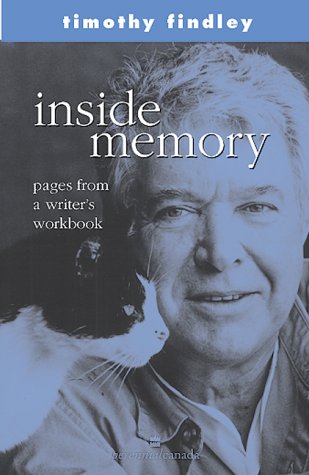 From Inside Memory: Pages from a Writer’s Notebook by Timothy Findley (Toronto: Harper Perennial Canada, 1999; first edition Toronto: HarperCollins Canada, 1990)
From Inside Memory: Pages from a Writer’s Notebook by Timothy Findley (Toronto: Harper Perennial Canada, 1999; first edition Toronto: HarperCollins Canada, 1990)
“Stone Orchard
November 11, 1970
Radio
In the plays of Anton Chekhov, there is always a moment of profound silence, broken by the words: “I remember …” What follows inevitably breaks your heart. A woman will stand there and others will sit and listen and she will say: “I remember the band playing and the firing at the cemetery as they carried the coffin. Though he was a general, in command of a brigade, yet, there weren’t many people there. It was raining. Heavy rain and snow.”
Or some such thing. And she is transformed, this woman, by her memories — absolutely transformed. And as you watch her and listen to her, you are transformed, too — or something inside you is. You change. Your attitude changes. In a way — if it has been well done — your life changes. Why should this be?
I think one reason must be that Chekhov discovered the dramatic value of memory — that a woman in tears remembers happiness; that a smiling, laughing man remembers pain. This gives you two views in one: depth and contrast. But, there’s more to it than that. Memory, Chekhov also discovered, is the means by which most of us retain our sanity. The act of remembrance is good for people. Cathartic. Memory is the purgative by which we rid ourselves of the present….”